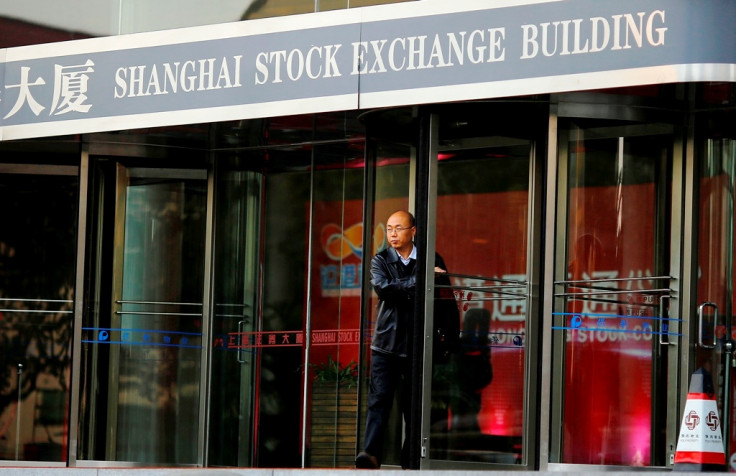Asian markets round-up: Most bourses trade lower amid China's margin lending curbs

Asian markets outside India traded lower on 15 June amid new rules that curb margin lending in China, home to the world's best-performing stock markets this year.
The Japanese Nikkei finished 0.08%, or 15.46 points, lower at 20,387.79.
The Shanghai Composite finished 1.99%, or 102.59 points, lower at 5,062.99.
Hong Kong's Hang Seng finished 1.58%, or 431.01 points, lower at 26,861.81.
Australia's S&P/ASX 200 finished 0.12%, or 6.50 points, lower at 5,538.80
South Korea's Kospi Composite finished 0.58%, or 11.82 points, lower at 2,042.32.
India's S&P BSE Sensex finished 0.61%, or 161.25 points, higher at 26,586.55.
Market movements
The Nikkei pared early losses and finished in neutral terrain.
Capital Economics said in a note to clients: "The strength of Q1 GDP seems to have vindicated the Bank of Japan's optimistic outlook on the economy. However, we think that growth will be much slower in the rest of the year, so inflation is unlikely to pick up as quickly as policymakers hope. We therefore stick to our view that more easing may be announced as soon as October."
The Shanghai Composite was pulled down by regulation that now caps the size of margin trading and short-selling in the world's second-largest economy. The new rules, a first in the nation, were published by China's markets regulator on 12 June.
[The CSRC] has also banned all margin financing, leverage and collateral arrangements... Chinese equities could be vulnerable in the short-term."
IG's chief market strategist Chris Weston said in a note: "Traders are selling out of positions to take part in the 25 initial public offerings (IPOs) coming to market. Talk is we could see over $1tn rotating out of the market to pay for what is effectively seen as free money for Chinese institutional traders.
"The regulator (the CSRC) has also banned all margin financing, leverage and collateral arrangements which is big news... Chinese equities could be vulnerable in the short-term."
The Kospi finished at its lowest level since 3 April post the implementation of a new policy that sees the daily price limit on the benchmark index doubled to 30%. The new trading range has been applied to stock certificates, depository receipts, beneficiary certificates, exchanged-traded funds (ETFs) and exchange-traded notes.
On the data front, South Korea's exports fell 10.9% year-on-year in May while imports declined 15.4%, according to revised customs agency data.
...Importantly, core inflation fell further, providing more evidence of slack in the [India] economy.
Elsewhere, the Sensex ended a tad higher after data showed that India's wholesale price index (WPI) fell at a slower-than-expected annual rate of 2.36% in May, as against a 2.65% decline in April.
Capital Economics said in a note: "Wholesale price inflation edged up in May, but it remains firmly in negative territory and close to its lowest rate since the series began in 2005. Importantly, core inflation fell further, providing more evidence of slack in the economy."
Company stocks
In Shanghai, banks took a hit. Banking giant ICBC lost 2.02%. China Minsheng Banking and China CITIC Bank 4.55% and 4.37% respectively. Ping An Insurance lost 3.54%.
In Hong Kong, Prada dropped 4.91% after the fashion house warned of difficult market conditions in Asia-Pacific. Technology major Lenovo lost 2.1%.
In Seoul, tourism related scrips took a beating amid the outbreak of MERS in the nation. Korean Air Lines and Asiana Airlines finished 6.13% and 5.47% lower respectively. Hotel Shilla and Hanatour Service lost 5% and 3.31% respectively.
Samsung's de facto parent Cheil Industries lost 6.34% amid uncertainty over whether its $8bn buyout bid for builder Samsung C&T will go through. Samsung C&T lost 2.32%.
Snack-maker Orion lost 4.62% after it said it was mulling a bid for retailer Tesco's South Korean arm.
In Mumbai, Nestle India settled 2.14% lower after it said it expects an over $49m hit from the ongoing withdrawal and destruction of its Maggi instant noodles.
© Copyright IBTimes 2024. All rights reserved.






